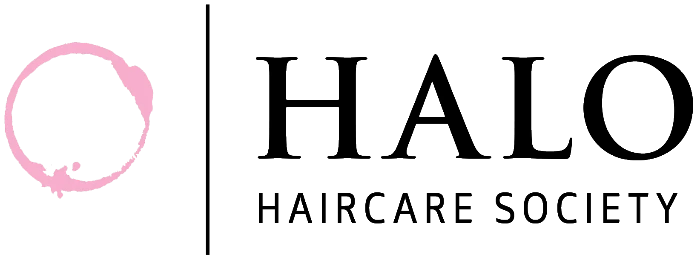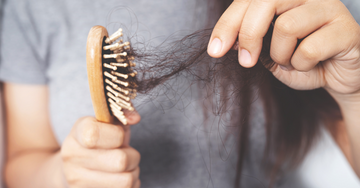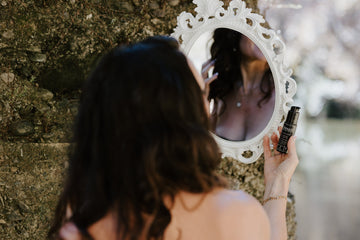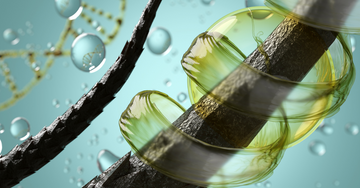Supporting emotional well-being during hair loss from chemotherapy
Dealing with hair loss during chemotherapy can be a challenging experience. Hair holds immense personal significance, and waking up to find hair on your pillow or catching a glimpse of your reflection serves as a constant reminder of your cancer diagnosis. For many, this visible transformation is what creates anxiety around hair loss—the public acknowledgment of their health battle. It's crucial to recognize that the emotions triggered by this situation can range from vulnerability and anger to sadness. You might even find yourself hesitant to step outside the safety of your home. If you're struggling, remember that reaching out to your support network—family and friends—can provide a valuable outlet.
Throughout my years of working with women, I've often heard them express feeling "silly" for worrying about hair loss when they're dealing with so much more due to their illness. It's important to understand that this sentiment is entirely normal and a natural part of your journey. Never dismiss your concerns as insignificant; they're an integral aspect of the overall process.
Understanding Hair Loss Caused by Radiation
Radiation therapy aimed at treating head and neck cancers can lead to hair loss. The guidance provided below applies to both radiation and chemotherapy side effects.
Unpacking the Connection Between Certain Chemotherapy and Hair Loss
It's worth noting that not all chemotherapy drugs result in hair loss. Some might lead to thinning, while others might not affect your hair at all. Chemotherapy is designed to target rapidly dividing cells, and since hair is among the fastest-growing cells in the human body, along with skin and the gastrointestinal tract, it becomes collateral damage during the treatment. As a result, the hair bulb and follicle sustain damage, leading to hair loss. While scalp hair loss is the most common, other areas such as eyebrows, eyelashes, underarms, legs, and pubic regions can also be impacted.
Navigating the Hair Loss Process
As your hair begins to fall out, you might experience a tingling sensation under your scalp as the hair detaches from the bulb. Your scalp can become sensitive, itchy, and might develop sore pimples around the follicles. Hair tends to fall out more readily in areas with higher friction. Typically, this process starts around 2-3 weeks after your initial treatment. Be gentle with your scalp at this time as the heightened sensitivity can cause nerves to go on overdrive with just a simple touch. As I'll mention below oil and silk are gentle ways to protect your scalp from discomfort.
To Shave or Not to Shave
One common dilemma that arises as you witness your hair falling out is when to shave your hair. This decision is deeply personal, but I recommend discussing it with your family or a trusted hairdresser, if you have one. Your hairdresser might even offer home visits or private appointments to ease your nerves as you make this choice. In my experience, clients often sit in my chair with varying thoughts on what to do. Some prefer to shave immediately after the first treatment to avoid the emotional impact of watching their hair fall out. Others wait until they see strands falling before they're mentally prepared to shave, while some choose not to shave at all, holding onto the strands they have left.
It's important to note that opting not to shave can lead to tangling, heightened sensitivity, and scalp issues, making it uncomfortable to brush and care for your hair. I've witnessed the delayed distress caused by the eventual need to remove tangled hair.
Caring for Your Scalp During Chemotherapy
While your hair growth is temporarily halted during treatment, taking care of your scalp and skin barrier becomes vital to minimize irritation and provide a healthy environment for hair regrowth. Using a daily oil helps protect and repair your skin barrier while providing relaxation to your scalp. Cleansing with a gentle plant-based cleanser if you feel your scalp needs it. Always reapply oil before and after cleansing for added protection and nourishment. Your hair offers a natural protective mechanism, so incorporating silk into your daily and sleep routines can be beneficial. Silk closely mimics your hair and scalp's natural composition, reducing friction, sensitivity, and environmental exposure (sun, wind, cold). You can wear turbans as elegant coverings outdoors, under wigs or scarves for comfort, or at night to regulate temperature. Silk pillowcases are also an excellent option if nighttime head coverings feel claustrophobic.
Transitioning Beyond Treatment and New Hair Growth
Maintaining scalp health is essential for fostering hair regrowth. An irritated or dry scalp can compromise the fragile new strands as they emerge. Continue applying oil to your scalp or use a scalp treatment that strengthens new hairs, supports follicle health, and repairs your skin barrier. This is the time to opt for shampoos that are gentle and contain plant-based vasodilators, which encourage nutrient-rich blood flow to nourish your hair. Massaging your scalp can enhance circulation and promote hair growth. You can also use conditioners to strengthen new hair, selecting lightweight options without insoluble silicones to prevent buildup around the follicles. You might choose to stick with oil until you feel the need for additional nourishment.
During these early stages, it's important to understand that your hair might not regrow with the same color or texture as before. It's possible for hair to come back gray or silver, and straight hair might return curly. Although research suggests that hair will eventually regain its original texture, my firsthand experience indicates that this isn't always the case. Embrace the journey, and have fun experimenting with various styles as your hair grows back. Regular trims can help thicken the new hair, which is delicate like fine baby hair.
Author's Reflection
With over 23 years of experience working passionately with hair and scalp analysis, I'm here to support you on your journey. If you need personalized advice, feel free to reach out. I'm here to help you establish a new routine tailored to your unique needs and circumstances.
Contact: nicola@halohaircare.co.nz





